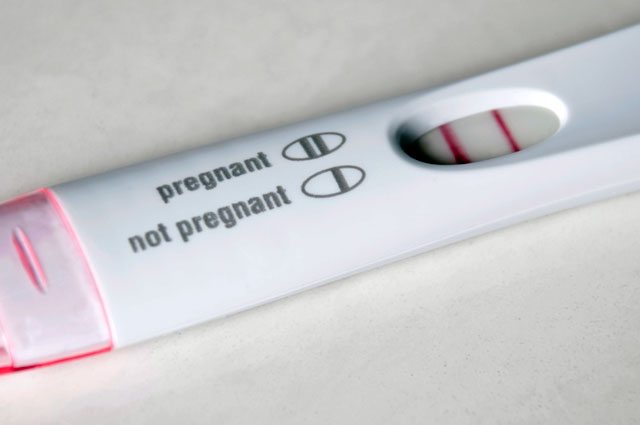By Nathaniel Herz
Alaska Dispatch News, Anchorage.
JUNEAU
Legislators reviewing the state’s efforts to combat fetal alcohol syndrome got new details Thursday about a high-profile, state-funded academic study involving free pregnancy tests in bar bathrooms that’s expected to begin next month.
The two-year, $400,000 University of Alaska study is part of a broader state initiative aimed at preventing fetal alcohol spectrum disorders, a leading cause of mental disability that has bedeviled legislators and public health officials for decades.
The study generated controversy and criticism when it was announced last year, especially when paired with comments from one of its boosters, Sen. Pete Kelly, R-Fairbanks, a social conservative who supports restrictions on abortion.
He said in an interview last year that the study wouldn’t include free birth control, which he said is “for people who don’t necessarily want to act responsibly.”
At a Senate Finance Committee hearing Thursday, Ryan Ray, an aide to Kelly, said the goal of the study will be to determine whether the free pregnancy tests and the prevention messages are “actually an effective methodology” to raise awareness of the disorder and, indirectly, prevent it.
“The idea is having something so unique it creates that public discussion,” Ray told the committee. “Alaska’s the first place in the world that has tried this strategy.”
Lifetime costs to the public of each case of fetal alcohol syndrome are estimated to be as high as $4.2 million. It occurs when women drink while pregnant.
Cases of the syndrome have dropped sharply in the past two decades but the state still has the highest known rate of the disability. But the rate is in danger of rising again after the loss of federal funding obtained by the late Sen. Ted Stevens.
The study is expected to take place in bars and restaurants in nine communities — including Anchorage and the hub communities of Kodiak, Nome and Dillingham — and it’s being run by the University of Alaska Anchorage Institute of Circumpolar Health Studies.
The study has drawn skepticism from some advocates, as well as from Sen. Berta Gardner, D-Anchorage, who praised a separate public awareness campaign on fetal alcohol spectrum disorder as a “good investment” but questioned whether the free pregnancy tests were “the most efficient or effective methodology.”
“It’s probably less expensive to give people a brochure than to give people pregnancy tests,” she said.
Erik Houser of Planned Parenthood Votes Northwest called the free pregnancy tests “the world’s worst idea” in a tweet Thursday, and subsequently emailed a statement attributed to another PPVN spokesperson, Jessica Cler, saying the money could have been spent more effectively.
“Better public health starts with reducing unintended pregnancies,” the statement said. “And to do that we need better family planning in our state, not pregnancy tests in bar bathrooms.”
In a phone interview, David Driscoll, the UAA health institute’s director, said there’s actually a “theoretical foundation in the health education literature for this kind of an approach.”
It’s typical for broad-based prevention messages like those in the study to be placed at the “point of purchase,” he said, comparing fetal alcohol-related messages in a bar or restaurant bathroom to the warnings placed on cigarette packages.
And since free pregnancy tests are already being provided at bars elsewhere in the country, the study could provide insight into whether the approach is truly effective.
“It’s never been evaluated,” Driscoll said. “There’s a real opportunity for us to make a contribution here.”
Meanwhile, a new $500,000 state public awareness campaign on fetal alcohol spectrum disorders will start in the second week of March. It’s being administered by the Alaska Mental Health Trust Authority, which contracted with an Anchorage advertising firm, Northwest Strategies, to produce a three-minute video that was previewed in the committee meeting Thursday.
It will be shortened when it begins running on television. A spokeswoman for the mental health authority, Carley Lawrence, said the campaign will also use social media and radio.
The trust has hired a company to conduct research across the state to help measure the effectiveness of the campaign, Lawrence said.
In the Senate hearing, Kelly, the co-chair, said the state is taking a long-term approach to fighting fetal alcohol spectrum disorders and he wants to explore whether it’s possible to work with researchers to develop a better method for diagnosing the disorder.
But it’s not yet clear how much money will be set aside in this year’s budget for future efforts or even to sustain the current ones. In addition to the nearly $1 million for the study and public awareness campaign, the First Alaskans Institute received another $600,000, some of which was directed toward a program to develop a group of citizens to counsel women who are drinking while pregnant.
Kelly said last year the state would spend “millions” on its public relations effort. But Alaska now faces a multibillion-dollar budget shortfall, and Ray said they’re trying to find sources of private funding.
“That’s how to make it sustainable,” he said. “There’s a commitment to the initiative — we’ll find money somewhere.”














































































































































































































































































































































































